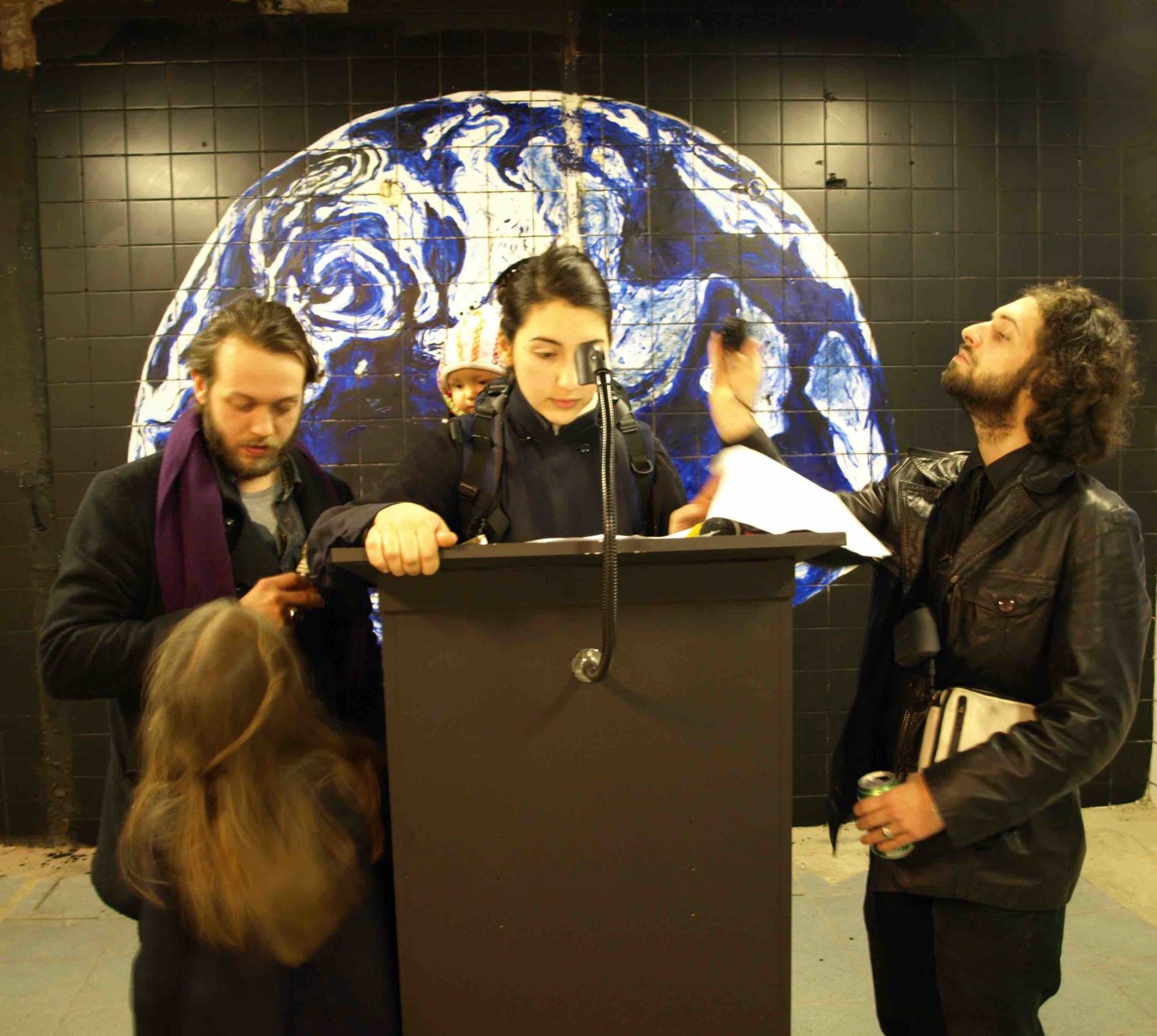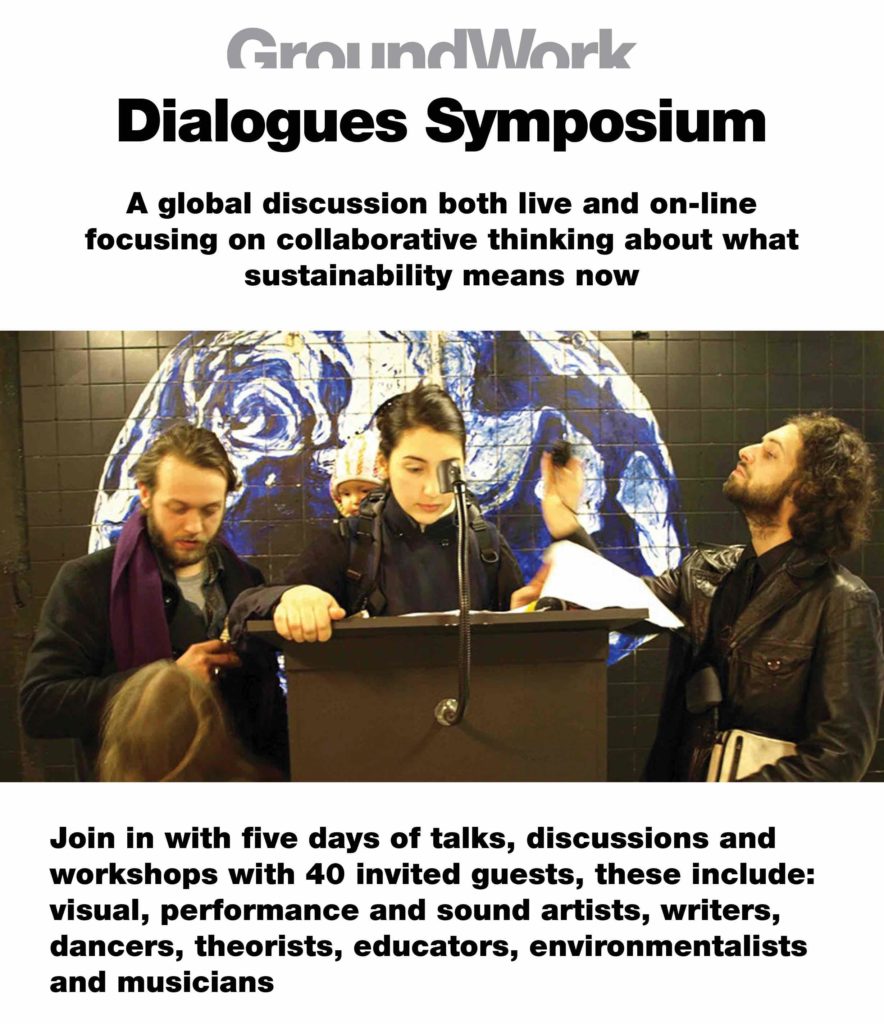
Focus on sustainability
For the first GroundWork Dialogues Symposium we are discussing sustainability and what that means to us now. Sustainability is a topic addressed in many fields and contexts. As the entanglements of globalisation and the urgencies of climate change unfold, we need continually to re-define and re-evaluate what it means. Groundwork Dialogues Symposium offers the opportunity to explore themes of sustainability anew, to reach new heights and depths of thinking, creating, and researching.
Conveners: Dr Veronica Sekules and Dr Marina Velez Vago
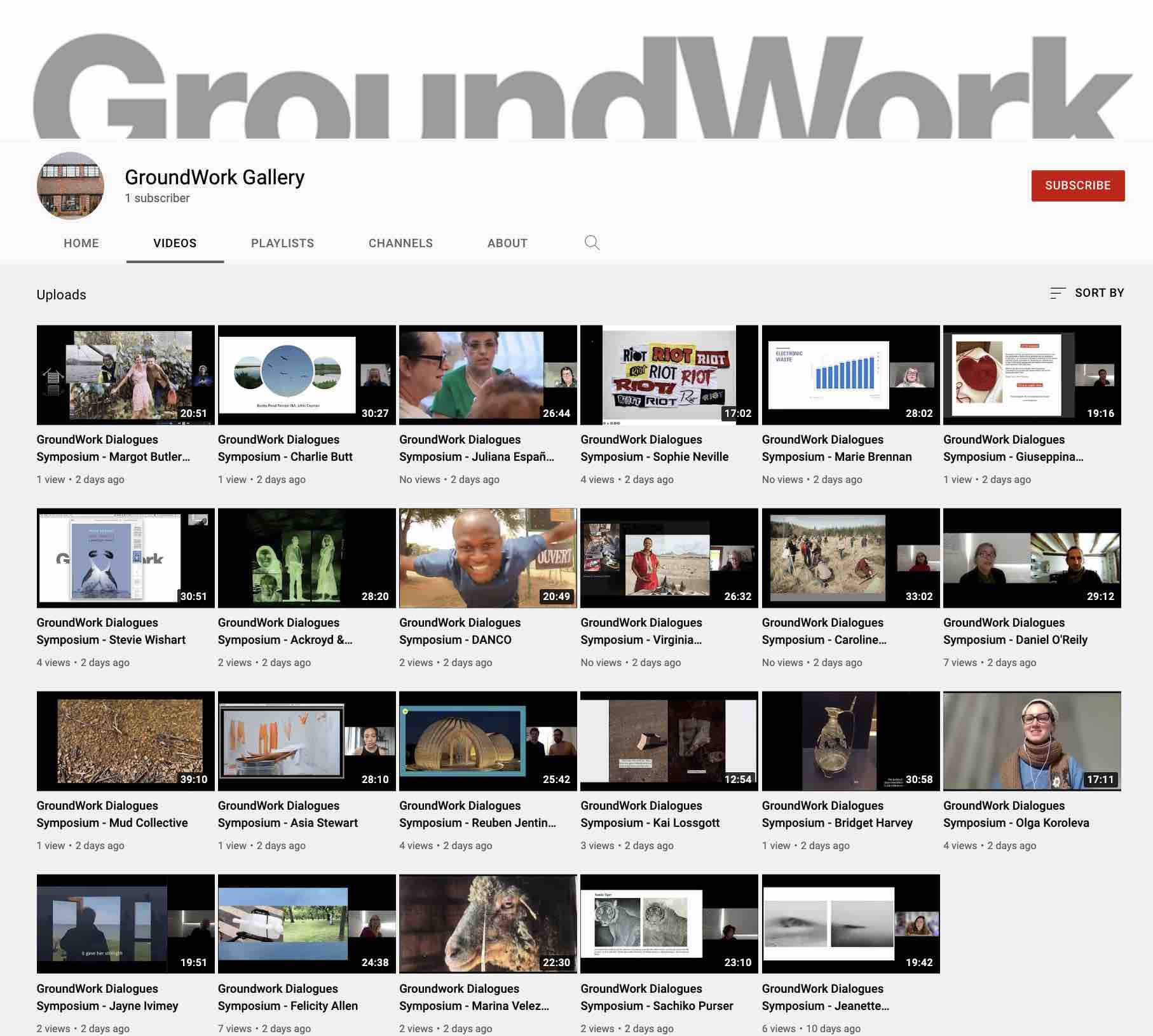
You can now watch the whole symposium (nearly) online via the playlist link from the picture below. Or go straight to the channel and choose your own viewing
https://www.youtube.com/channel/UCQ9KpD-PXvgNblNJyf4i8qQ/videos
Collaboration
Issues around sustainability have become so entangled and complex that they need to be approached collaboratively. We need to work together, and think creatively to explore other ways of being in the world. This symposium provides a space for dialogues around themes of sustainability. We are inviting people with different interests, specialisms and disciplines to contribute to the conversation – including you.
Both live and on-line
To get the most from this symposium, you need to be with us in King’s Lynn. In real life you will get the most benefit from all the talks and all the discussion. It is organised over a week as a series of presentations, discussions and workshops. Some speakers, especially international ones, will speak on-line only. These talks will be broadcast live and can also be followed in the room. In King’s Lynn we also have invited speakers, and all of these will also be on-line.
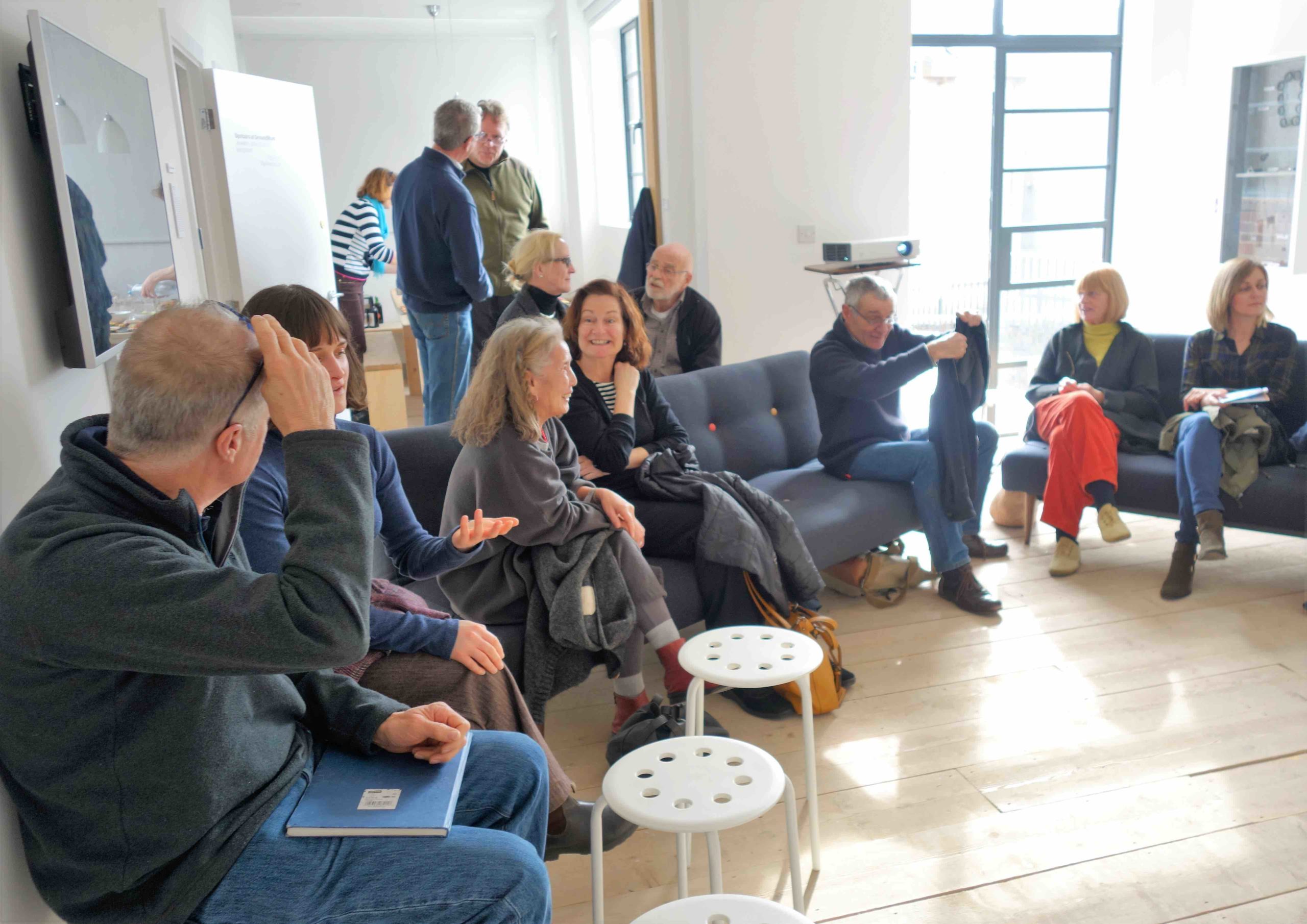
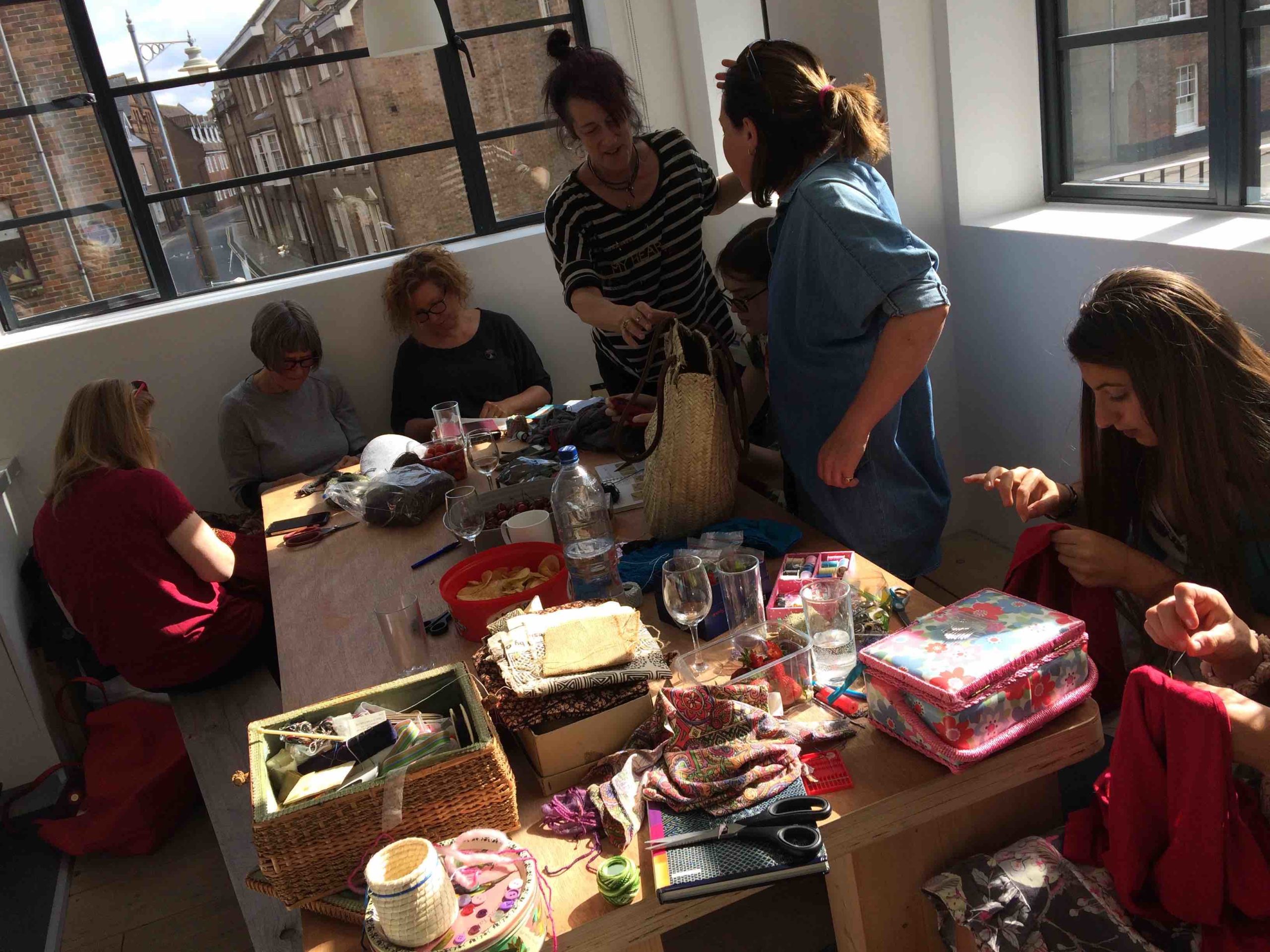
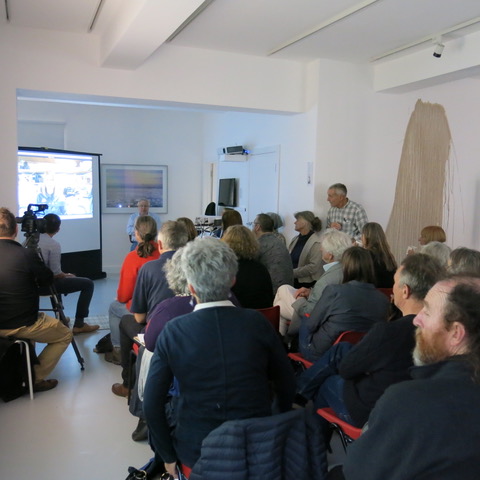
Dialogues and Participation
We aim to trace many pertinent issues through this symposium, and to explore them from a variety of disciplines and angles. We want to create an atmosphere of open discussion and empathy, enabling participants to connect. Nevertheless, each person will identify their own place within these broader connections. We aim to have discussion between on-line and live presentations, but recognise that juggling this might limit our informality.
Above all, and in spite of technical complications, we hope that the audience will play a strong participatory role, engaging in lively discussion. We are not pre-judging any outcomes, nevertheless we anticipate that there will be much synergy between attendees and that new collaborations will result.
Themes
In order to stimulate discussion, we have guiding themes clustered into four groups.
- Displacement (refugees, waste, coastal erosion, territory, human-non-human species, displaced values).
- Reciprocity and exchange (cross-pollination, collaboration, communities of support, trust, equality of engagement, land sharing between communities and species, food security, equal rights).
- Knowledges (other knowledges, indigenous knowledges, situated knowledges, inter-cultural knowledges, tacit knowledges, knowledges of time, know-how, embodied knowledges, empathy as knowledge, the experiential as knowledge).
- Healing and repairing (re-wilding, caring, making kin, fixing, heritage and tradition, learning how to live together, ethics of working-with, social and political forgiveness and reparation, conflict and coexistence, consent).
Timetable
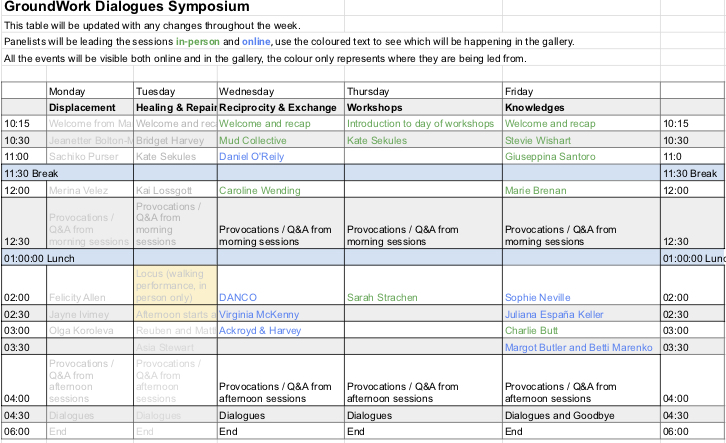
Speaker biographies
Groundwork Dialogues Symposium
MONDAY 28th February
Displacement
Jeanette Bolton-Martin (10:30-11:00)
Paper title: Fixing Ghosts: Witnessing disappearing spaces along the North Norfolk coast
Bio: Jeanette Bolton-Martin is a photographer and researcher based in Norwich, UK. Her work explores coastal erosion through photographic practice; ranging from digital moving image to analogue processes to investigate ways of representing vanishing land and its effect on those who bear witness to it. She is currently undertaking her PhD by practice at Norwich University of the Arts & UAL alongside lecturing and freelance projects.
Website: https://www.jboltonmartin.co.uk
Sachiko Purser (11:00- 11:30)
Paper title: Endangered Species
Bio: Sachiko Purser is a Cambridge based artist and printmaker. She was born and raised in Kyushu, in the southwest of Japan, in an environment which was close to nature and to animals – both of which have had a major influence on her. Purser graduated from Cambridge School of Art in 2015, obtained an MA in Children’s Book Illustration, and recently completed for an MA in Printmaking. She is passionate about nature and the environment, especially the welfare of animals and birds. She combines traditional techniques such as Japanese wood engraving and Sumi-ink painting with a contemporary perspective of printmaking and digital techniques to create mixed organic-technological hybrids.
Website: https://sachikopurser.com
Marina Velez Vago (11:30- 12:00)
Paper title: Camelopard, where she will be exploring displacement of other
Bio: Dr Marina Velez is an artist, an educator and a researcher, based in Cambridge, UK. She works across areas of contemporary art and sustainability. Marina’s practice addresses people’s behaviour and the social construction of values, placing emphasis on how values affect the protection or degradation of other species and the environment. Marina uses photography and video to explore and articulate these issues, focusing on the creation of spaces where values can be revised, discussed and transformed.
Website: www.marinavelez.com
Email: marina.velez@marinavelez.com
Instagram: @marinavelezvago
Felicity Allen (14:00- 14:30)
Paper title: Water : Colour
Bio: Felicity Allen is an artist working in painting, writing and film. Her sixth series of Dialogic Portraits, made as artist in residence with the research project People Like You: Contemporary Figures of Personalisation, is the basis for her film Figure to Ground – a Site Losing its System https://peoplelikeyou.ac.uk/portrait/. Recently her work has been included in the Royal Academy Summer Exhibition, Turner Contemporary’s Open, Margate Film Festival, and at the Ikon Gallery’s A Very Special Place: Ikon in the 1990s. Recent publications include The Disoeuvre (Ma Bibliothèque, 2019).
Website: www.felicityallen.co.uk
Jayne Ivimey (14:30- 15:00)
Paper title: …. because I am part of it. Addressing the issues of displacement and loss
Bio: Jayne is an artist based in on the Norfolk coast. The coast is deeply ingrained in her work and she has returned to the subject repeatedly over many years in a quest to understand its geology, its ecosystems and its morphology. She will be presenting her film Because I am part of this.
Website: https://jayneivimey.com
Email: jayneivimey@gmail.com
Olga Koroleva (15:00- 15:30)
Paper title: Soft Shell, Whale Watching
Bio: Olga F. Koroleva is a London-based artist – curator – un-academic researcher – forager – lecturer. Her work honours slow practice and self-care while exploring ways of non- exploitative cohabitation with multiple others on this planet. She works primarily with expanded research cinema, and is the founder of the international peer group The Political Animal. She has previously taught animal theory at The School of Art, Architecture and Design, London Metropolitan University. She is currently a Film Practice Fellow at the Centre for Film and Ethics, Queen Mary University of London.
Website: http://www.olgakoroleva.com
TUESDAY 1st March
Healing and Repairing
Kate Sekules (10:30 – 11:00)
Paper title: MEND! A Refashioning Manual and Manifesto
Bio: Kate Sekules is a PhD candidate in Material Culture and Design History at Bard Graduate Center, New York, researching mending cultures and related fields. She has lectured on the history, methodologies, and contexts of textile repair at institutions including Parsons, NYU, FIT, and Tufts, and taught mending workshops at RISD Museum, and Winterthur Museum, among many others. She holds an M.A in Costume Studies from NYU, and published “MEND! A Refashioning Manual and Manifesto” (Penguin) in late-2020.
Website: https://visiblemending.com
Instagram: @visiblemend
Bridget Harvey (11:00- 11:30)
Paper title: Repair-Making: Craft, Narratives, Activism
Bio: Bridget Harvey uses making to ask critical questions, generating new understanding and adding meaning through craft. Investigating processes and concepts through making, she asks what we make, how we make it, and why that matters. She embraces interdisciplinarity, using found objects and materials like fired ceramics, wood, and textiles. Through her artefacts she examine ideas like pace, repetition, and playfulness. Since 2013 she’s focused on repair within multiple disciplines, and as independent practice. As 2018/19 Victoria and Albert Museum Artist in Residence, she examined the relationship of repair to conservation through artefacts, a publication and exhibition and her practice-based PhD was titled Repair-Making: Craft, Narratives, Activism. Her work has been exhibited widely including at the V&A, Bridport Arts Centre and Natural History Museum of Denmark, and she has written for exhibition catalogues such as A Narrative of Progress: The Camberwell ILEA Collection (2018). Her work is held by the V&A and the Camberwell ILEA Collection. A solo exhibition of her work was at the National Centre for Craft and Design (2019).
Website: https://bridgetharvey.co.uk
Instagram: @bridgetharvey
Email: bridget@bridgetharvey.co.uk
Kai Lossgott (11:30 – 12:00)
Paper title: Aftermath
Bio: Kai Lossgott’s work investigates questions of personal and environmental health as human agency within the socio-ecological crisis. His videos are screened on local street corners, at international museum and gallery events, as well as film festivals. The artist is also known for his public performance collaborations and curating moving image. His work has been shown at the Dak’art Biennale, Dakar; Centre Pompidou, Paris; Institute of Contemporary Art, Zagreb; Johannesburg Art Gallery and Museum Africa, Johannesburg; Arnot Art Museum, New York; Whitechapel Gallery, London.
Website: https://kailossgott.net
LOCUS (14:00 – 15:00)
Paper title: River Sisters
Bio: LOCUS est. 2006 by Thale Fastvold and Tanja Thorjussen is an artist and curator duo based in Oslo, Norway working with performance, prints and public art. As a nomadic and fluctuating entity LOCUS produces exhibitions and art projects in various locations nationally and internationally. Recent projects in 2021 include Gilded Trees performance at SKOG (Forest) exhibition at Spriten Kunsthall in Skien and Prague Bienniale Project “Re-connect Art” and Locus Pollinator Garden “Dagny Juels Hage” public art installation at Kvinnemuseet in Kongsvinger, Norway. River Sisters: Akerselva, Oslo & River Great Ouse, King´s Lynn.
Website: http://www.locusart.org
Instagram: @locus_oslo
Email: Locuspost@gmail.com
Reuben Jentink and Matthew Arthur (15:00 – 15: 30)
Paper title: Composting Futures
Bio: Matthew is a co-editor of Capacious, a Journal for emerging affect inquiry and a member of the radical open access collective. He organises the international conference Affect Inquiry and Making Space. He teaches at Hum, an interdisciplinary programme with residents of Vancouver’s Downtown Eastside at the University of British Columbia and facilitates an ongoing 14-week feminist techno-science salon. His work reads across feminist and Indigenous techno-science to imagine accountable theory-making and new media storytelling practices.
Website: http://mathewarthur.com/work/
Bio: Reuben’s work is guided by methods set out in settler-colonial studies, as well as critical feminist, race, and queer theories. He says: ‘Learning from place might be construed as a practice of respect—a concept that continually emerges in my studies, in my work, and in my activism. A theory of respect might serve a geographical analysis attuned to the poetics and politics of un-ceded land and foster relations between native and non-native peoples.’
Website: http://reubenjentink.com
Asia Stewart (15:30 – 16:00)
Paper title: Fabric Softener
Bio: Asia Stewart is a Brooklyn-based performance artist whose conceptual work centers the body as a living archive. After receiving degrees in the social sciences from Cambridge and Harvard University, she has sought ways to embody abstract sociological theories and transform the language specific to studies of race, gender, sexuality, and diaspora into materials that can be felt and worn on the body. As a National YoungArts Winner in Musical Theatre and a former National Arts Policy Roundtable Fellow with Americans for the Arts, Stewart uses her past experiences on stage to inject her work with a heightened sense of theatricality. In 2020, Stewart concluded her first independent performance series, Graft, which attempts to capture the violence that constructions of whiteness and femininity wrought on Black bodies. Works from that series have been showcased at venues such as the Mercury Store, Untitled Space, NARS Foundation, and Goodyear Arts and will be presented in group shows at A.I.R. Gallery and Parsons’ Kellen Gallery in early 2022. While in residency at the NARS Foundation in Fall 2021, Stewart began to develop an interdisciplinary performance entitled Fabric Softener, which explores intergenerational trauma and Black inheritance. She will continue to refine and revisit this new work at 2022 residences that include Chateau Orquevaux, the GALLIM Moving Artist Residency, and Marble House Project.
Website: https://www.asiastewart.com
WEDNESDAY 2nd March
Reciprocity and Exchange
Mud Collective (10 -30- 11:00)
Paper title: A collective earth
Bio: “A Geology-Art-Sound research collective based in Iraq, France and the UK, MUD Collective is a group of multidisciplinary artists (including a sedimentologist). In our coming together we fuse geological and artistic approaches to reveal alternative perspectives and new knowledges. The presentation will emerge from the ongoing flow in the exploration of collectivity in its broadest, beyond human range of possibilities. As we allow chance to participate in the creation of stratigraphic texts and layered sound, can we break through metaphor to experience the common energies between us and the earth?
Website: https://ajourneythroughvoiceandvessel.wordpress.com/about/
Daniel O’Reilly (11:00 – 11:30)
Paper title: Surrealist sound
Daniel is a sound artist and a writer of experimental short stories, based in Catalunia, Spain. He is the director of Archipelago, an avant-garde literature press.
coffee break
Caroline Wendling (12:00- 12:30)
Paper title: White Wood
Bio: Caroline Wendling’s work explores ideas of place and belonging through layered projects that draw on history and explore local myths, inviting re-imaging of sites.
She creates artworks that are fragile and transient in the form of sensory walks/performances and events, blurring notions of audiences and performers. She often works with collaborators, specialists in their fields such as children, chefs, musicians, foresters, perfumers, master printers and more. She takes her audience on a physical, sensory and emotional journey leaving them with a poetic encounter and a story to tell.
Recent commissions include Habit{ing Kettle’s Yard, 2019, Because it’s Empty Whitechapel Gallery, London, 2019, Hypoteinousa Wysing Arts Centre, 2021, White Wood 2014-16 and White Wood Signage 2020-21, Deveron Projects, Huntly.
Email: c.wendling93@yahoo.co.uk
Instagram: @caroline_wendling
DANCO (14:00 – 14:30)
Paper title: Wanna dance with me?
Bio: Danco – School Decolonizing the art of dance is a polyphonic, collaborative ensemble which produces new ways of thinking and working in the frontiers of art and science, making cultural positions of power visible. Danco aims to create an environment for dance performance and research in which competence is not mirrored through any hegemonic culture but where ways of being in the body are equated, explored and produced in an equal relationship with each other and the environment.
Currently Danco consists of four dance artist-researchers, and one theatre director/theorist, all from different continents, connecting together dance cultures from around the world.
How to allow different ways and rhythms of participation, create space for different styles of learning and rehearsing, and let individual desires to manifest in the same space?
How to construct togetherness and collaboration that allows the specificity of different individuals and cultures to work and create together?
Website: https://www.heidiseppaladance.com
Virginia McKenny (14:30 – 15:00)
Paper title: The Making of |Xau
Bio: Associate Professor of Painting, Michaelis School of Fine Art, University of Cape Town, South Africa Living-Languages-Land a British Council Creative Commissions contribution for COP 26 proposed a journey through endangered and minority languages exploring 26 words that reveal different world views of land and nature. Invited to participate I sought to collaborate with First Peoples playwright and filmmaker Sylvia Vollenhoven. An Afrikaans speaker her originating language from the San Bushman is ǀXam. She provided the word |Xau – ‘to shoot a magical arrow’. This presentation tells of the collaborative making of a short animation where artists from different places (Namibia and South Africa) and different disciplines join forces.
Ackroyd and Harvey (15:00 – 15:30)
Paper title: Lille Madden and Uncle Charles “Chicka” Madden
Bio: Heather Ackroyd and Dan Harvey are internationally acclaimed artists who create works that intersect art, activism, architecture, biology, ecology and history. Referencing memory and time, nature and culture, urban political ecologies, the climate emergency and degradation of the living planet, their time-based practice reveals an intrinsic bias towards process and event. Processes of germination, growth and decay (organic and inorganic) feature in artworks that often evolve through extended research in response to people and place, interfacing their profound interest in local ecologies and global planetary concerns.
Website: https://www.ackroydandharvey.com
FRIDAY 4th March
Knowledges
Stevie Wishart (10-:30 – 11:00)
Paper title:
Bio: Stevie is an English composer, improviser and performer on the hurdy-gurdy and medieval violin. She was educated at Cambridge, Oxford and the Guildhall School of Music studying composition and electronic music at the University of York, where she specialised in composition, electronic music, ethnomusicology, and medieval music. With a Vicente Canada Blanch Fellowship at the University of Oxford she researched representations of medieval music in the visual arts taking Spain and the Mozarabic world as the main focus. It is from this initial study of iconography that an involvement in multimedia contexts for her music performance developed. Formative hands-on time was also spent following contact with John Cage and David Tudor while playing at the Edinburgh Fringe Festival, and with traditional fiddle players in Istanbul and Rajasthan, as well as studying the hurdy-gurdy with Valentin Clastrier in central France.
Email: music@steviewishart.net
Giuseppina Santoro (11:00 – 11:30)
Paper title: Web of love
Bio: Giuseppina’s work focuses on Immigrant Folk Art and connections to home and belonging in Contemporary Art. Researching traditional, cultural, ritualistic and religious objects made around the home and how this attaches to our identity and belonging. In 2011, Pina was awarded honours from the Louvre, Paris for her ‘Petit Dammes’ collages.
Email: pina@figtreeartstudio.com
Website: http://figtreeartstudio.com
Marie Brennan (11:30- 12:00)
Paper title: Digital carbon footprint
Bio: Marie is a creative industries professional and an associate Dean at Norwich University of the Arts, My practice involves working with others to plan for culture and creativity and embraces the development of cultural places and programmes. She is a keen design historian and has taught architectural and design history in Ireland and the UK and believe that social, cultural and historical contexts are always valid to contemporary practices.
Sophie Neville (14:00- 14:30)
Paper title: It’s A Riot
Bio: Sophie is a contemporary textile artist based in Cambridgeshire, UK. Her artwork combines traditional craft techniques such as hand embroidery and crochet with contemporary socio-political and feminist subjects, often featuring text and appropriated elements.
Email: sophieneville.art@gmail.com
Instagram: @sophienevilleart
Juliana España Keller (14:30 – 15:00)
Paper title: Las Atrevidas::The Risk Takers
Bio: Dr. Juliana España Keller is an electronic Sound and Performance artist, Curator, Researcher and Educator based in Spain. Through her multi/trans/interdisciplinary approach, she addresses all bodies as forms of noise and disruption in the way in which language and communication is made ‘noisy’. Her ‘Public Kitchen’ works have been exhibited in site-specific spaces globally and contribute to histories of sound performance art with an objective lens on participatory practices in feminist materialist and posthuman theory using the space of the domestic kitchen as the focus.
Juliana also directs an International Creative Artist Residency named: BAJO EL OLIVO in Alhaurín el Grande which seeks to sustain and develop a collaborative environment with a more-than-human approach to multi-species ethnographic research. This approach acknowledges the interconnectedness and inseparability of humans and other life forms This circular relationship is also dedicated to a platform of transdisciplinary art practices, philosophy, and social community engagement.
www.julianaespanakeller.com
www.bajo-de-olivo.es
Charlie Butt (15:00 – 15:30)
Paper title: Birdlife
Bio: Charlie Butt currently works at the Royal Society for the Protection of Birds as Caribbean Territories Programme Manager. Charlie’s interest in wildlife began at an early age, when his father used to take him for walks at UK nature reserves on family holidays. The sound of a curlew – a large wading bird with a long, curved beak – has an extraordinarily evocative call, and hearing these at dusk during walks with his father along the Anglesey coast, is one of his earliest memories. Charlie solidified his interest in natural history with a BSc degree from the University of Essex in Biological Sciences (Ecology) in 2005, and then specialised in Ecology, Evolution and Conservation at Imperial College in 2007. With volunteering prior to, during and post-university, Charlie has around 20 years of nature conservation experience. Prior to re-joining the RSPB in 2018, Charlie spent 7 years at BirdLife International (the world’s largest global conservation partnership of grassroots NGOS) overseeing a partnership between CEMEX, a global cement company, and BirdLife, focussed on developing conservation projects of mutual value to BirdLife Partners and CEMEX operations. In his present role, Charlie’s focus is to support conservation partners and government in the British Caribbean Territories of Anguilla, the British Virgin Islands, Cayman Islands, Montserrat and Turks and Caicos. The work of the Caribbean team includes defending key sites for nature, saving globally threatened species from extinction and influencing environmental governance.
Website: https://www.cambridgeconservation.org/about/people/charlie-butt/
Margot Buttler and Betti Marenko (15:30 – 16:00)
Paper title:
Bio: Dr. Margot Leigh Butler is the academic Director at the Institute for Critical Indigenous Studies, Faculty of Arts, University of British Columbia, in Canada.
Website: https://experts.news.ubc.ca/expert/margot-leigh-butler/
Bio: Betti Marenko is a trans-disciplinary theorist, academic and educator working across process philosophies, design studies and critical technologies. She is the founder and director of the Hybrid Futures Lab, a transversal research initiative developing speculative-pragmatic interventions at the intersection of philosophy, design, technology and future-crafting practices.
Website: http://bettimarenko.org

